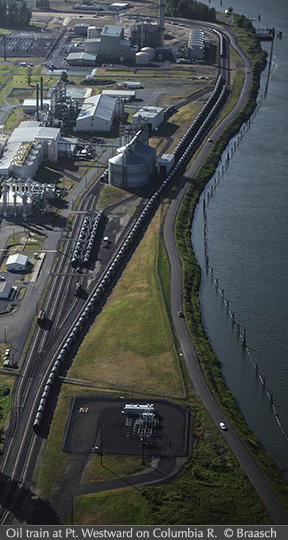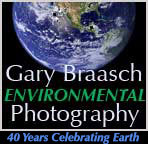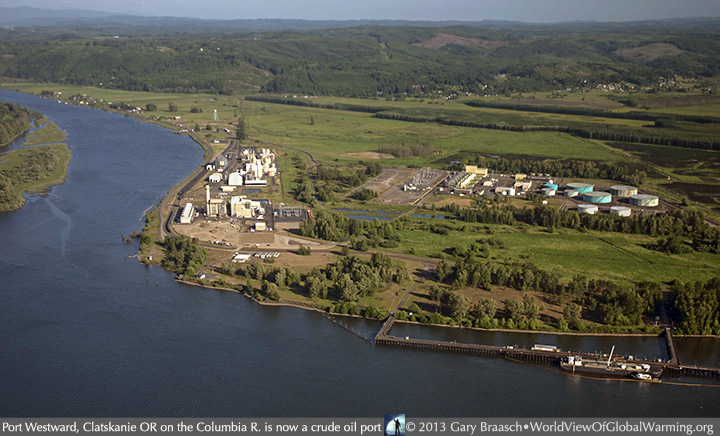Climate News and Views
Shipment of fossil fuels down Columbia River propels Northwest into center of climate change and energy debate.

The Pacific Northwest has become a central focus for coal and oil producers, who are laying plans to roll huge amounts of coal and crude oil by train along the Columbia River to NW ports. The proposed and active transport mainly to serve Asian markets has become a flash point for the climate movement to reduce the production, export and burning of fossil fuels. The industry proposals for more and larger fuel ports come despite President Obama's announcement in June of new controls on CO2 emissions, increased emphasis on renewable energy and a decision to stop funding overseas coal fired power plants. If the three active proposals for coal exports to Asia from ports on the Columbia River and Puget Sound come to pass, for example, it could total 100 million (metric) tons of coal each year coming in by train -- which would make more than 200 million tons of CO2 when burned (based on energy industry estimates), which is the amount spewed by more than 50 average-sized coal power plants. For more on coal, please look here, and here; for information on health aspects; a port being requested in the Columbia River Gorge, see here.
Meantime, oil producers are beginning to ship huge quantities of crude oil by rail, all the while pressing the State Department, EPA and Interior Department for permission to build more pipelines. The horrible runaway oil train firestorm in Quebec sharply focused Northwestern officials and the public on the dangers of long trains of black tank cars passing daily through our communities. But this has already begun. In 2012, Port Westward, part of the Port of St Helens near Clatskanie, Oregon, 50 miles upstream from Astoria, began receiving tank car trains of crude oil for transfer to fuel barges, according to news reports. Port Westward is the site of a new PGE natural gas power plant and "Columbia Pacific Bio-Refinery," an partly-state-financed biofuel processing and shipping plant. However, after going out of business and eventually being bought by Global Partners (Massachusetts) the intended-biofuel depot's 3.6 million gallon tanks are now used to transfer crude oil arriving by train from the Bakken fields of North Dakota and Montana (which is in a boom due to increased drilling and fracking). The Port of Vancouver, also on the Columbia River but in the Vancouver-Portland metro area, is considering a request by Tesoro for what would be the largest crude oil transfer facility. Three proposals for Grays Harbor would transfer crude oil to ships sailing along the Washington coast. And crude oil is already rolling down the Columbia river rail route bound for two refineries in Washington. Crude oil can not be directly exported, so all these ports would serve west coast refineries by oil tanker ships and barges sailing in the Columbia River, Puget Sound and along the ocean coast. The refineries supply both export and domestic markets.
Climate and energy change proponents are planning a public event at the Port of Vancouver and on the Columbia River on July 27. An insightful report by Sightline Institute, "Pipeline on Rails," says that "if all of the oil-by-rail projects were built, they would be capable of moving 720,000 barrels per day—that’s more oil capacity than either of the controversial pipelines planned in British Columbia."
COPYRIGHT NOTICE:
Photography and text Copyright © 2005 - 2017 (and before) Gary Braasch All rights reserved. Use of photographs in any manner without permission is prohibited by US copyright law. Photography is available for license to publications and other uses. Please contact requestinformation@worldviewofglobalwarming.org. View more of Gary Braasch's photography here.



